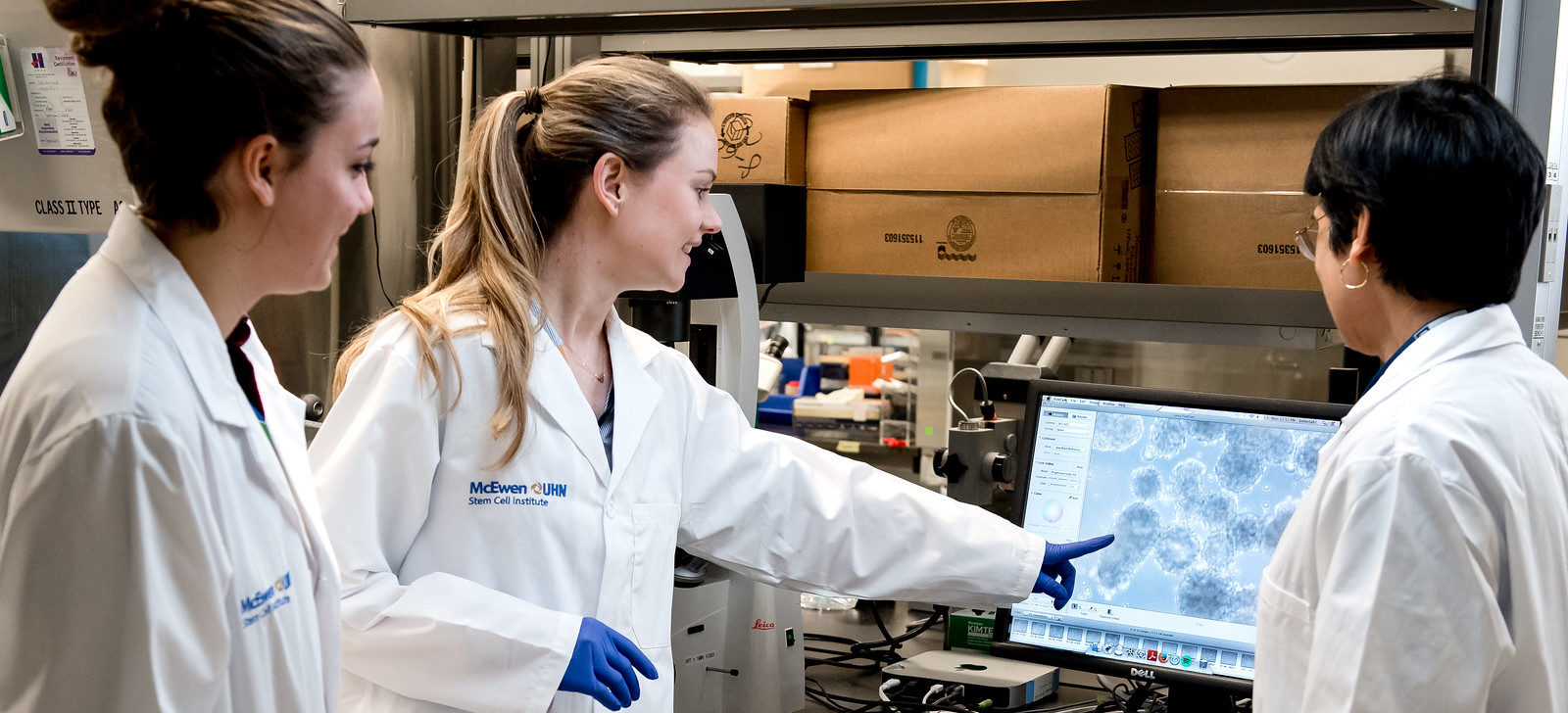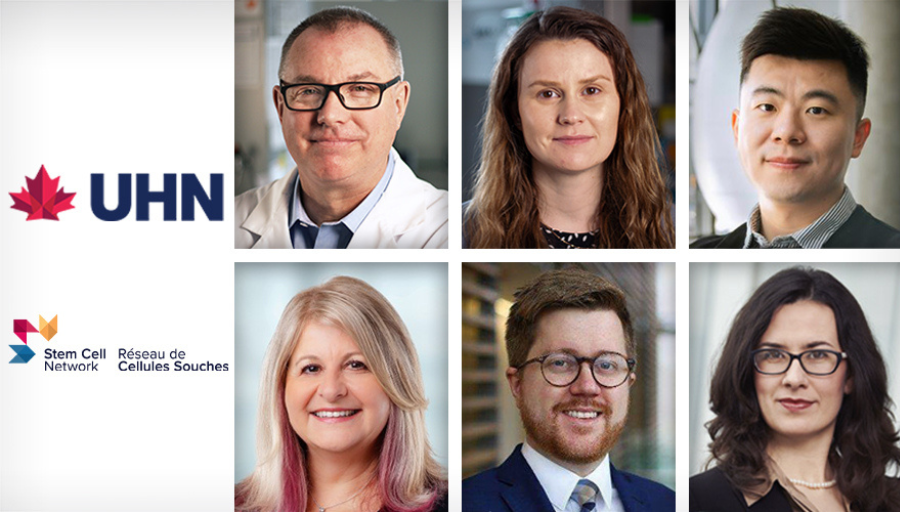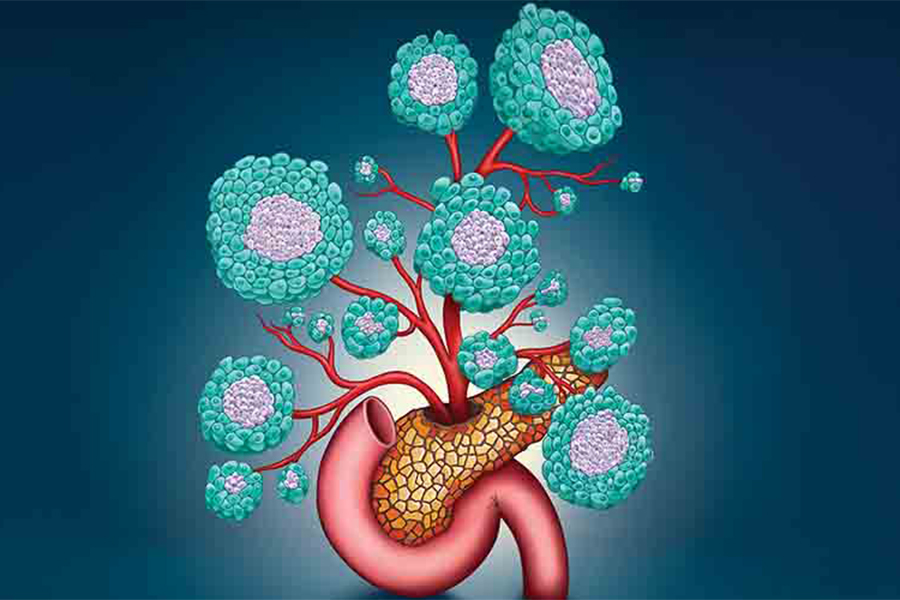
McEwen Stem Cell Institute
The McEwen Stem Cell Institute is a world-renowned leader in stem cell research and regenerative medicine. Established as the McEwen Centre for Regenerative Medicine in 2007, the McEwen Stem Cell Institute was created in 2018 to signal the remarkable progress made by the researchers since the centre was built. The institute brings together scientists, investors and philanthropists to unleash the potential of stem cell therapies. By collaborating with researchers from around the world, we’re forging groundbreaking partnerships to move discoveries from theory to therapy.
The overall goal of the McEwen Stem Cell Institute is to develop tangible and impactful cell-based therapies in areas of disease that have unmet needs. To accelerate translation to the clinic, our four core research programs – blood, diabetes, heart and liver – align with UHN’s greatest clinical strengths that have the highest potential to benefit from stem cell biology. Scientists from the McEwen Stem Cell Institute are collaborating with clinical teams at UHN to accelerate innovative new therapies that will revolutionize patient care – at UHN and worldwide.
UHN has recruited some of the best and brightest pioneers in the field of regenerative medicine from around the world who have made incredible progress in driving the institute’s research forward.
We need donor support to continue to unleash the power of stem cells – advancing game-changing scientific discoveries that will restore heart function, make electronic pacemakers obsolete, eliminate insulin injections, cure liver disease and beat blood cancer.
McEwen Stem Cell Institute fundraising priorities
One in 12 adults in Canada lives with heart disease. Heart attacks damage the heart muscle and lead to scar tissue, which can cause a loss of pump function and an increased risk of heart failure. We’ve developed heart cells from stem cells, which can be used to replace scar tissue in the heart. This treatment could restore heart muscle function – and reverse heart failure.
Failure of the heart’s pacemaker tissues can lead to an irregular or slow heartbeat. The only treatment for this condition is an implanted electronic pacemaker device. These devices have limited battery life and must be replaced every five to 15 years, which requires invasive surgery. We’ve developed ways to create functional pacemaker cells from stem cells. These pacemaker cells could one day be used to build biological pacemakers that eliminate the need for replacement surgeries.
More than 300,000 Canadians live with Type 1 diabetes, a disease in which the pancreas makes very little to no insulin. Insulin injection is used to treat this disease, but it isn’t perfect. Fluctuating daily blood sugar levels can lead to long-term health complications. We’re working to develop insulin-producing pancreatic cells. Implanting these cells into patients with Type 1 diabetes could improve their quality of life – eliminating the need for insulin injections and blood sugar monitoring.
More than three million Canadians live with chronic liver disease. Requests for liver transplants far exceed the number of available livers, leaving patients with few treatment options. We’re working to overcome this challenge by developing liver cells derived from pluripotent stem cells. These cells could be transplanted into patients with chronic liver disease to regenerate and repair damaged and diseased livers – eliminating the need for a transplant and enabling us to treat more patients.
Leukemia and other diseases of the blood-forming system can disrupt the production of different types of blood cells and lead to life-threatening conditions. Following treatment for leukemia, patients require a bone-marrow transplant, but it can be challenging to find a donor. We’re pursuing new strategies to generate blood-forming stem cells in the lab from human pluripotent stem cells. In the future, these cells could be used to restore normal blood cell production without a bone marrow transplant in patients treated for leukemia.
Want to learn more?
News & stories
Member Spotlight… [archived]
International Society for Stem Cell
Researchers at U of T use…
U of T News
Bloom Burton Award 2020
Business Wire
Q&A: Stem cell scientist Michael Laflemme
Toronto Life
Additional links & resources
McEwen Stem Cell Institute Research
McEwen Stem Cell Institute Videos
YouTube
Follow McEwen Stem Cell Institute:
Contact information:
Mireille Millette
Campaign Director
416-319-3745
[email protected]


